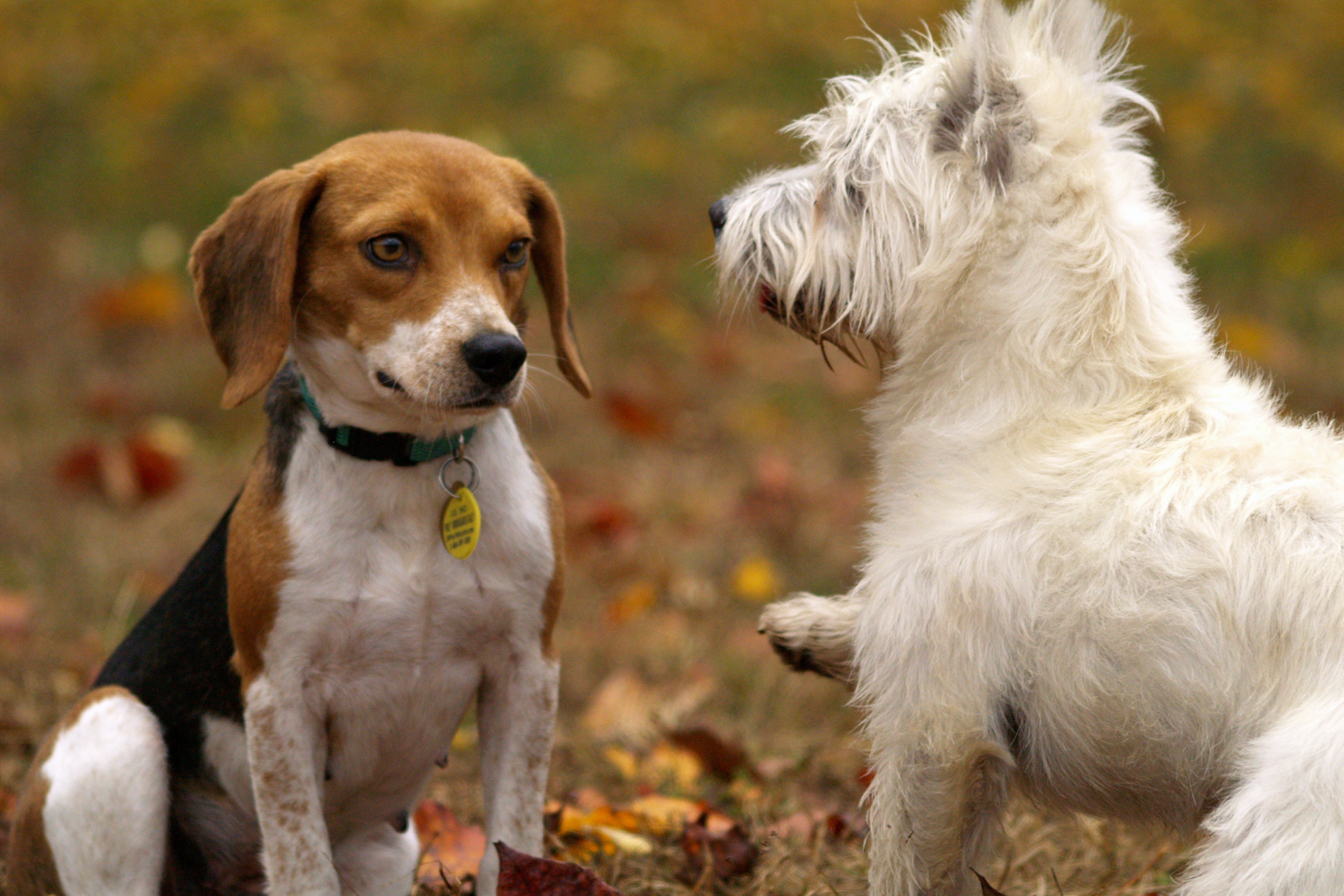Every puppy parent has come across the concept of dominance – the idea that dogs require a strict hierarchy in their living situations to ensure they don’t cause trouble for us. A hierarchy in which we need to be the ‘pack leader’. While this idea is an incredibly dominant (pun intended) cultural belief, the domesticated dog is no longer considered a pack animal that requires or seeks that hierarchical lifestyle. In fact, neither are wolves. Wolves have a family structure in the wild just like us – the strictly dominant hierarchy the way we envisage it doesn’t exist. The original studies defining the ‘alpha’ wolf have since been updated.
Within the scientific literature, the term ‘dominance’ refers to an animal ‘winning’ access to a valued resource over another animal. In this situation, the ‘dominant’ animal may not value that same item the next day (and therefore is not dominant), or may not be dominant in relation to another resource (think toys vs. food). Simply – it refers to how much an animal values a resource over another. However, the hierarchy remains flexible and changing day to day and does not refer to a malicious, manipulative or intense driving need for our dogs to behave in particular ways in order to usurp us. If your dog is displaying some worrying behaviour over resources, please contact a qualified, experienced dog trainer or behaviour vet. You can find a list of the qualified trainers in Adelaide here.
Traditionally dogs have been labelled as 'dominant' for performing any particular unwanted or troubling behaviour (e.g. pulling on lead, humping, barking for attention, jumping on the bed, not getting in the car, not getting out the car, not coming when called, aggression, fear, any type of play, toileting inside, running away with stolen items, growling, etc. etc... ). As you can imagine, there are multitudes of reasons that dogs might perform these behaviours, and the motivation likely differs for each individual dog, based on their genetics, previous experience and the current environment.
Not only is 'dominance' not a constant, primary driving motivation for all behaviour, but it also places the blame squarely on the dog (instead of their developmental stage, the effectiveness of your training and the situations you place them in). This will undermine the effectiveness and success of your training, as behaviour change processes are so much more complex than simply telling a dog off for being 'dominant'.
Please note: we do not recommend the use of punishment in training in accordance with recommendations from the RSPCA SA.
In short, dogs do what works for dogs. They’re opportunistic and fun loving and in any given situation, they mostly behave depending on what’s in it for them. In most cases, behaviours that we used to think were caused by an innate drive for dominance, are in fact, explained in a much simpler manner –
- Dogs rush through doorways first because they’re excited to see what’s on the other side (and because you didn’t ask them to wait first! – in the absence of information, they’ll default to easy and fun behaviour)
- Dogs jump up and sleep on the couch or your bed, because it’s more comfortable than the floor, and it smells like you, which is comforting.
- Dogs jump up on us because they’re excited, and in the dog world, it’s polite to greet nose-to-nose (and then nose-to-butt). How are they meant to know that four on the floor is better than their default? Reinforce for polite greetings to help them speak our language.

You also don’t need to eat first, play first, exit or enter first to prove that you’re more dominant than your dog. Just ensure each of those activities are controlled and safe (ie. Ask your dog to wait before opening doors etc.) In fact, feeding them at the same time as you might provide you with some relief while you eat.
However, you do need to be consistent in your application of house rules and patient in your training while your dog learns them. Reinforce your dog with food, toys, games or attention when they do the right thing in any given context, and they will perform that behaviour more often. Check out this link for more information on dominance.
